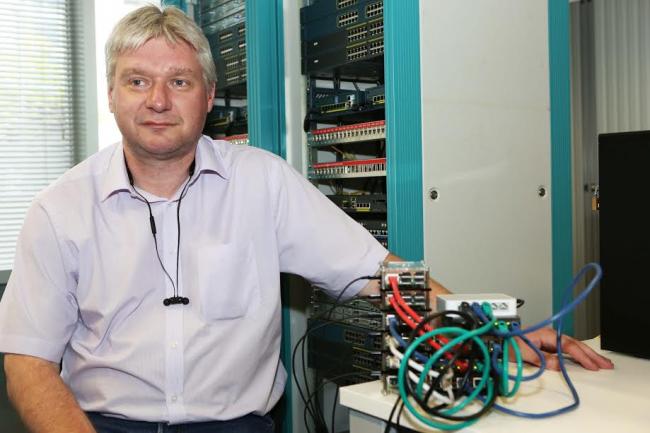
New system being devised to restore communications in the wake of disaster
Ron Austin, Associate Professor of Networks and Security at Birmingham City University (UK), has created the prototype system which could be used to plug a crucial gap in systems such as telephone, GPS and internet links during the first 24-hours following a disaster.
The network runs using Raspberry Pi computer development boards, which can be linked together to form a bespoke setup, tailored to the needs of a site, which could also be used to monitor environmental factors such as earthquake aftershocks and tsunami second waves.
Around 90 per cent of live rescues are made during the first 24-48 hours following a disaster - a period known as the ‘golden 24 hours’ - but large scale infrastructure takes around two days to ship to a disaster site.
The new portable system could help save lives by allowing basic systems to be put in place to plug the gap during that critical window and allow communication with emergency services and survivors until full scale systems can be restored.
The system would be used by first responders to:
· Restore telephone systems
· Provide internet services and GPS links
· Help direct survivors to areas of safety
· Monitor the environment for key factors such as aftershocks following an earthquake, or second waves of a tsunami
· Provide links with emergency services
· Eliminate the reliance on heavy duty equipment which is unavailable during the first 48-hours
· Provide an expandable network which is easily adjusted
The creation will be on show at Birmingham City University’s Open Day on Saturday and its creator Ron Austin will be talking to visitors about the project.
Ron Austin said: “It was while experimenting with Raspberry Pi's that I first came up with the idea of using them in this way.
“By connecting a number of Raspberry Pi's together I’ve found that we could have a genuine solution to the gap in services following a disaster. We know it takes a long time to ship out heavy duty equipment to get the full scale systems back up and running, but we also know that that first 24-hour period is crucial in saving lives during disasters. If we can provide a system that gets these important services back up and running swiftly and simply then we would have a real opportunity at getting people the information they need which could save lives,” he said.
First responders would be able to transport the system in a single box or briefcase to the site and instantly setup communications systems which have been damaged or eliminated during a disaster.
Inbuilt battery power supplies fitted to briefcases or transportation boxes would provide power for up to two days, while solar panels could also be used in areas of good lighting.
Researchers hope to work alongside emergency services and disaster recovery organisations to see how the system might be best utilised.
Ron Austin added: “What we want to do now is get out there and test the system and see just how much of a difference it might be able to make in these important situations.”
Support Our Journalism
We cannot do without you.. your contribution supports unbiased journalism
IBNS is not driven by any ism- not wokeism, not racism, not skewed secularism, not hyper right-wing or left liberal ideals, nor by any hardline religious beliefs or hyper nationalism. We want to serve you good old objective news, as they are. We do not judge or preach. We let people decide for themselves. We only try to present factual and well-sourced news.







